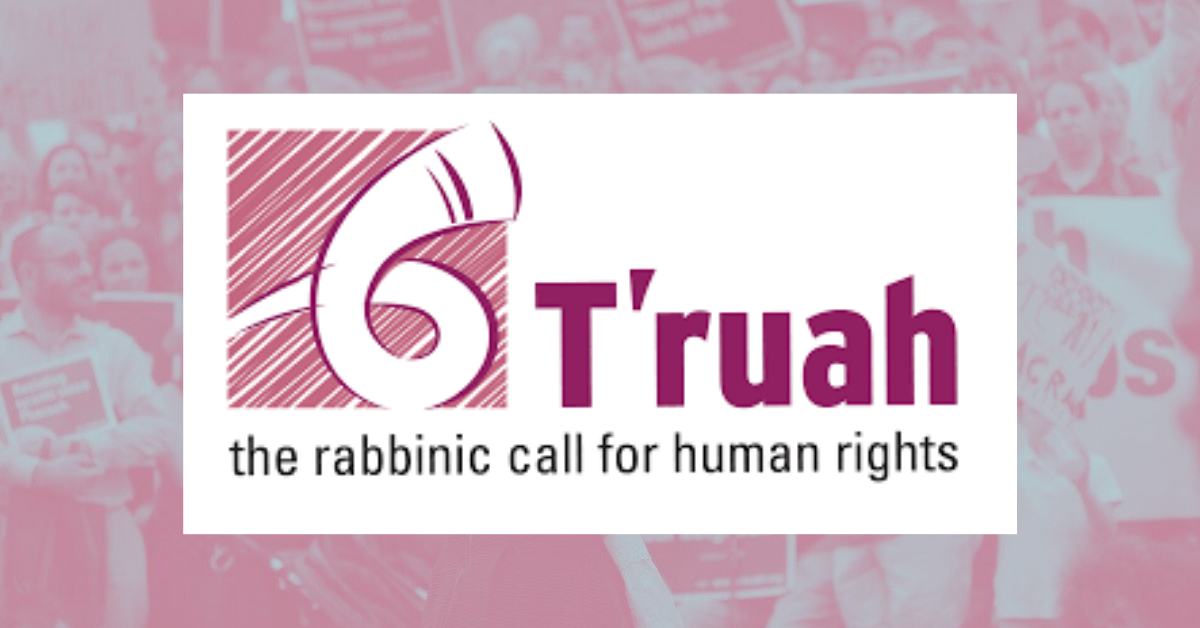NEW YORK — Today, T’ruah, a rabbinic human rights organization that represents over 2,000 rabbis and cantors and their communities in North America, released the following statement in reaction to news that a unionization vote at a Bessemer, Alabama Amazon warehouse has failed.
Rabbi Jill Jacobs, executive director of T’ruah, released the following statement:
“While the unionization vote did not turn out as we had hoped, the heroic efforts of the workers at Bessemer to bring more humane working conditions and higher wages will continue to reverberate throughout the country. This is the beginning of a movement, not the end. Already, we are hearing reports about how their efforts have inspired others to fight.
“We have a moral responsibility to fight for economic justice and work with dignity, including fair wages, pay equity, the right to unionize, safe work environments, and a robust social safety net. Jewish law mandates that workers are paid a fair wage, and treated with justice and dignity. Both Jewish law and the Universal Declaration of Human Rights insist on the right to unionize and to a living wage and safe working conditions.
“In the words of Rabbi Ben-Zion Meir Chai Uziel, the first Sephardi chief rabbi of the State of Israel, ‘the law gives [workers] the legal right to organize, and to establish stipulations that benefit the members of one’s profession regarding the fair distribution of work among the workers, and to achieve fair treatment and a wage appropriate for the work and sufficient to sustain one’s household at the standard of living as the other residents of his city…all of these things can only be fulfilled through a workers’ union.’ (Mishpetei Uziel vol. 4, Hoshen Mishpat #42)
“We condemn Amazon’s efforts to intimidate the workers through forced meetings, threats of closure, a smear campaign against the union, and other attempts to prevent workers from exercising their voice at work.
“Additionally, today’s economic system cannot be fully just until it acknowledges and compensates for past injustices, particularly the racial wealth gap that rests on generations of unpaid labor and outright theft. Ongoing organizing efforts will help bring a measure of justice to right this historic wrong.”
T’ruah: The Rabbinic Call for Human Rights mobilizes a network of more than 2,000 rabbis and cantors from all streams of Judaism that, together with the Jewish community, act on the Jewish imperative to respect and advance the human rights of all people. Grounded in Torah and our Jewish historical experience and guided by the Universal Declaration of Human Rights, we call upon Jews to assert Jewish values by raising our voices and taking concrete steps to protect and expand human rights in North America, Israel, and the occupied Palestinian territories.

